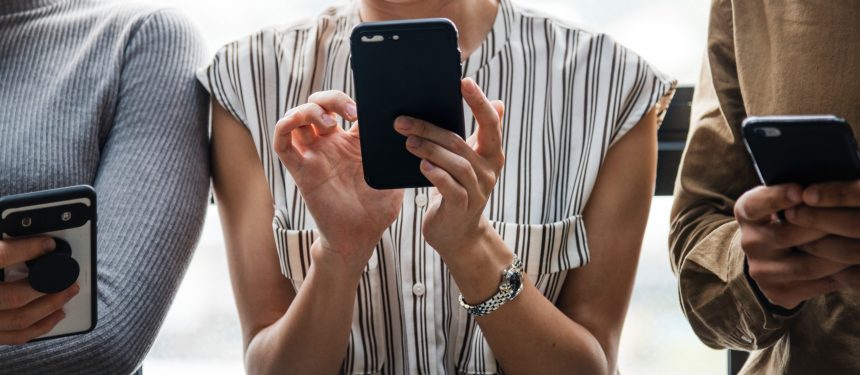The US government is increasingly turning to social media to vet potential immigrants, including international students and scholars, with US Citizenship and Immigration Services recently announcing it would create fake social media accounts to access information on visa applicants.
News and business analysis for Professionals in International Education
Have some pie!
US gov’t increasingly turning to social media to vet incoming int’l students
 The US government is increasingly turning to social media to vet potential immigrants, with USCIS announcing it would create fake social media accounts. Photo: rawpixel.com/ Pexels
The US government is increasingly turning to social media to vet potential immigrants, with USCIS announcing it would create fake social media accounts. Photo: rawpixel.com/ Pexels
In July, USCIS published a new policy that allows the agency to create “fictitious accounts or identities…when access to publicly-available information is only available to those who have a social media account”.
“Social media information will not… prevent travel based on an applicant’s race, ethnicity, religion, or sexual orientation”
According to a statement, USCIS’ fraud detection unit “uses a variety of sources when investigating potential fraud leads or cases with national security and public safety implications, one of which is open source or publicly available web-based resources, to include accessing publicly available information from social media sites.”
The use of fake accounts is a violation of the terms and conditions of many social media platforms, including Facebook and LinkedIn.
Nextgov reported that Facebook plans to remove any fake accounts it finds, including those operated by Homeland Security and other law enforcement agencies.
Immigration authorities have also started asking visa applicants for their personal social media information.
At the end of May, the US State Department announced that it added new questions to its online visa application, including for F-1 and J-1 visas for study in the US, that includes “social media identifiers.”
Applicants must provide usernames on all social media platforms they have used within the last five years.
“Collecting this additional information from visa applicants will strengthen our process for vetting these applicants and confirming their identity,” the State Department said in the statement.
An FAQ noted that consular officers will not ask for social media passwords.
“Authorized [Customs and Border Patrol] personnel may collect publicly-available information posted on social media sites when determining admissibility, reconciling screening and targeting matches, conducting counter-terrorism and counter-narcotics investigations and performing other operations related to CBP’s mission,” a CBP official wrote in an email to The PIE.
“The collection of social media information will not be used to prevent travel based on an applicant’s race, ethnicity, religion, or sexual orientation.
“CBP remains committed to protecting the privacy, civil rights, and civil liberties of all travellers.”
In addition to collecting usernames, immigration officials can search personal laptops and devices when international students and scholars enter the US.
In August, Ismail Ajjawi, a Palestinian student who was accepted to Harvard, was initially denied entry after immigration officials combed through his friends’ social media posts.
The Harvard Crimson – the university’s student newspaper – reported that Ajjawi was detained for several hours at Boston Logan Airport and immigration officers requested access to his phone and laptop.
He claimed he was interrogated about his friends’ social media activity.
Ajjawi alleged that the officer “found people posting political points of view that oppose the US on my friend[s] list”, according to the newspaper.
Ajjawi was deemed “inadmissible” and his visa was revoked before he was deported back to Lebanon, where he had been a refugee.
Ajjawi was eventually allowed to enter the US before classes started at Harvard, but his case points to the larger pitfalls of social media monitoring by immigration authorities.
David Di Maria, associate vice provost for international education at the University of Maryland Baltimore County, told The PIE that there is a risk that information gleaned from social media for immigration purposes might be misconstrued.
“Any time information is taken out of its original cultural and historical context there is definitely potential for misunderstandings to occur,” he explained.
He pointed to a domestic example: “Many outside of the US would be alarmed to view a social media posting containing the phrase, ‘live free or die,’ but within the US, these words are understood as the official state motto of the state of New Hampshire,” he said.
“Any time information is taken out of its original… context, there is definitely potential for misunderstandings”
An individual wearing a shirt with these words printed on it is more likely to be a tourist than someone making a political statement, he continued.
“However, that insight is lost just as soon as the phrase is taken out of its original context regardless of how accurate the translation.”
Ben Waxman, CEO of international education marketing firm Intead, added that one of the risks of social media monitoring by immigration authorities is that it may lead to self-censorship.
“In talking to two US-based international students recently, one from Brazil and the other from China, both expressed concern over this news and considered how they might limit or curtail their online activity to protect their immigration status and future plans,” Waxman said.
Still looking? Find by category:


